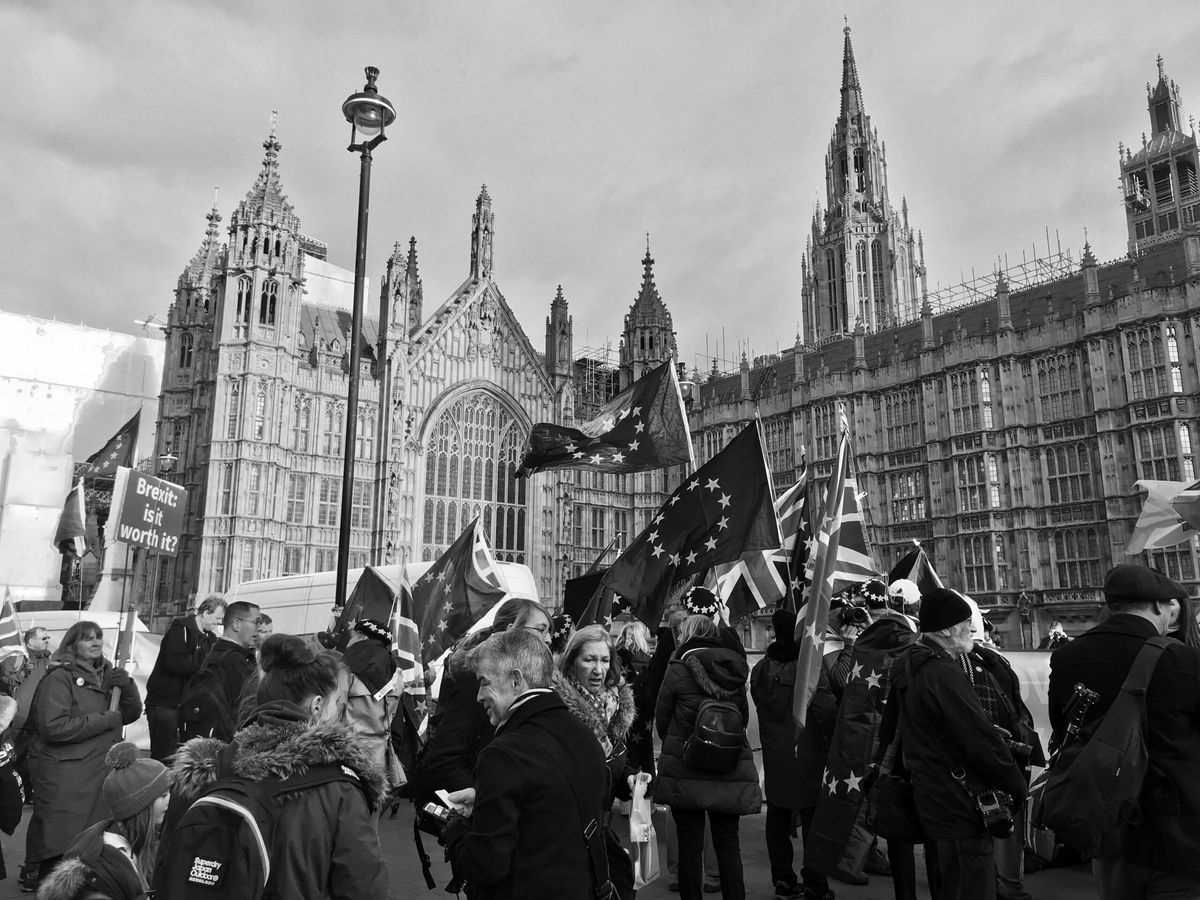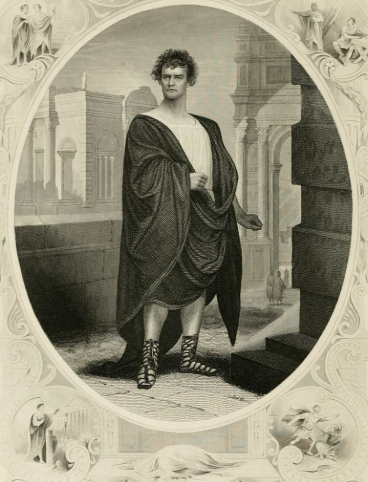Brexit at Home: How the Politics of Britain Affect Students

June 23 will mark the three-year anniversary of the “Brexit” referendum vote, when voters in the United Kingdom chose to leave the European Union after months of tumultuous campaigning. Since the vote, there have been countless debates in Parliament, several failed solutions and one snap general election, but the path forward for the United Kingdom still remains murky. After Parliament rejected all of Prime Minister Theresa May’s proposed deals, the European Union granted the United Kingdom a new deadline to leave: Oct. 31.
While Americans might find Brexit a humorous distraction from the circus of United States politics, for Amherst students from the United Kingdom, the uncertainty of Brexit is a much more serious issue. Almost three years after the election, most current Amherst students were under 18 when the 2016 Brexit referendum happened, preventing them from voting. All of the students interviewed by The Student said that had they been able to vote; however, they would have voted to remain in the European Union. Most young people in the United Kingdom agreed, with 71 percent of voters under the age of 25 voting to remain in the European Union, per a YouGov poll. A recent survey from online group StudentRoom showed that if the voting age had been 16 at the time of the referendum, the Remain campaign would have won.
For Alice Jackson ’21, the implications of the Brexit vote were one of the main reasons for her choice to attend college in the United States. Jackson comes from the north of England, near the town of Durham, which voted nearly 58 percent in favor of leaving the European Union. Despite the region’s preference for Brexit, Jackson said that she herself would have voted to remain because of the massive grants supporting youth education and vocational training that Durham and surrounding communities like Hartlepool receive from the European Union. She is worried that the loss of these grants will hurt her community and that Brexit will harm the reputation of British universities. Jackson learned about Amherst through a program called the Sutton Trust, which helps low-income students in the United Kingdom attend college in the United States. While she’s grateful to have the chance to study outside of the United Kingdom, she worries for the students who didn’t have the same opportunities.
Beyond the choice to study in the United States, Brexit has also influenced students’ decisions about where to live after graduation. For some, Brexit wasn’t enough to sway them: Kieran Brookes ’21 said that despite the uncertainty of Brexit, he still wants to move back to the United Kingdom after he graduates, while Phoenix Shaw ’22 said that he had always planned on staying in the United States, even before the referendum. Matthew McShane ’21 said that although he had assumed he would stay in Scotland after graduation, he would consider moving permanently to the United States if Brexit makes the job market in the United Kingdom worse. Sonakshi Dua ’21 is already leaning towards staying in the United States, saying “Brexit will potentially make going to graduate school or working in Europe harder [so] staying in the U.S. after graduation does look more attractive as a result.”
Hanna Bliss, the director of the Center for International Student Engagement (CISE), says that while Brexit is still a long way off, she expects that there will be no added visa trouble for students from the United Kingdom who want to study in the United States. She wants students from the United Kingdom to know that if they have any questions about getting visas or travelling to and from the United Kingdom, they are always welcome to talk to CISE staff. Additionally, she says that if Brexit causes unexpected or extreme economic instability, like many economists predict, that the CISE has both institutional resources to offer to students and information about larger federal programs which could help them out. Bliss also added that she is concerned about how Brexit will impact education in the United Kingdom. “With Brexit looming,” she wrote in an email, “studies show that international students are already expressing hesitancy to enroll in programs in the UK. A lot of coverage will focus on the possible economic implications of it, but it is also worthwhile to consider the cultural and social impacts.”
In addition to the students coming to Amherst from the United Kingdom, Amherst also sends dozens of students to the United Kingdom every year on study abroad programs. According to Janna Behrens in the Global Education Office, the United Kingdom is always one of the top five most popular destinations for Amherst students studying abroad. Despite Brexit, however, Behrens said that she would be “genuinely surprised” if there was any reduction in student interest in the United Kingdom. “While students might have to plan more before they go,” she said, “the Global Education Office is ready to help them with that preparation.” Behrens thinks that Brexit might attract Amherst students interested in studying British or European politics to the United Kingdom and actually increase the number of students who study there. She also added that while the Global Education Office hasn’t issued any official advice or updates on Brexit, all of the programs that they work with in the United Kingdom have done a great job of keeping their students informed about Brexit and its various developments.
David Wilson ’20 is studying in the United Kingdom right now at Queen Mary University of London. He said that Brexit wasn’t a factor in his decision to study in London, but he’s enjoyed talking with Londoners about Brexit and the European Union. According to Wilson, “The UK is unique in that the expectation of personal political involvement is higher. Everyone has an opinion [of Brexit] and they’re more than happy to share it with you.”
Kaelan McCone ’19 is from Greensboro, North Carolina, but is a citizen of both the United Kingdom and the Republic of Ireland. He said that he wants Americans to understand that Brexit could have serious implications for people living near the border between Northern Ireland and the Republic of Ireland. Because the United Kingdom and the Republic of Ireland were both in the European Union, the border between the two nations was a “soft border,” meaning that there were no physical barriers or intimidating checkpoints. This soft border was fundamental to the Good Friday Agreement, which helped to alleviate the religious conflicts in Ireland during the 1980s and 1990s. The United Kingdom’s leaving the European Union could result in the imposition of a hard border between Northern Ireland and the Republic of Ireland, which could bring back violence and would make life harder for people who cross that border regularly, like McCone’s aunt, who lives in Dublin but works in Northern Ireland. Shaw wishes that Americans better understood how Brexit happened, and recommended that people watch the documentary “Brexit: The Uncivil War.” He thinks the documentary gives a good insight into the Vote Leave campaign, and helps explain how the referendum unfolded.
As for Dua, she said simply that “I wish Americans know that most young people didn’t want it [Brexit] and still don’t want it.”
Jackson says that she wants Americans to know that while Brexit might seem humorous, for working-class people and immigrant communities, Brexit will have long-lasting and serious impacts on their daily lives. “Austerity and xenophobia have already done so much harm to those communities,” she said, “and it’s scary to think how things might get worse after we [the United Kingdom] lose E.U. worker protections, grants and immigration laws.”




Comments ()